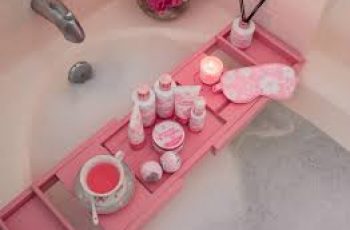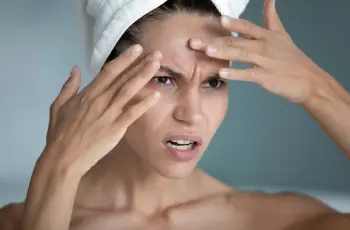
How Pollution Can Affect The Skin And How To Counteract It
Pollution, bad for the planet and terrible for the skin. Our skin is so susceptible to environmental stress and suffers from damage without us even realising it. With millions of us living in cities and busy towns, our skin is exposed to daily aggressors constantly. It’s no wonder that public interest in protecting the skin from pollution has doubled. Not to worry, we are here to help you find out more.
What is air pollution?
In a nutshell, air pollution is dirt particles and gases that are released throughout our day to day lives. Exposure to these can come from many sources, such as car fumes, construction sites, cigarette smoke and air conditioning. Pollution particles that are too small for the naked eye to see and are able to penetrate into the skin’s surface, which can then lead to clogged pores and uneven skin tone. Once the pollution has made its way into the skin’s barrier it makes it easier for more to flood through. Fortunately, you can save your skin’s health by maintaining an effective skincare routine, but more on that later.
How does pollution affect your skin?
Pollution is made up of tiny particles of dirt, soot and dust found in everyday environments preciously mentioned. These particles make their way onto the skin and caused a negative impact on the skin called oxidation. This in time will lead to a number of different concerns such as premature ageing, dark spots and even skin cancer.
Not only does pollution leave the surface of your skin feeling dirty, but the nanoparticles and chemicals are also able to penetrate through the skin’s epidermis causing something called “oxidation stress” which will weaken the skin’s natural barrier. This protective barrier’s role is to combat any harming toxins and free radicals that attack the skin. It is successful a majority of the time but isn’t impenetrable and so inflammations can be triggered.
The following skin concerns are caused by overexposure to pollution without the correct steps being taken to protect the skin;
Skin pigmentation, such as dark spots and uneven skin tone
Enlarged pores
Redness and rashes
Fine lines, wrinkles and all signs of premature ageing
Skin condition such as eczema and rosacea suffering from flare-ups
Breakouts such as spots and blackheads
Dull and lacklustre complexion
As you can see pollution has a lot to answer from when it comes to damaging the skin. You mustn’t give yourself too much of a hard time as avoiding pollution 100 per cent of the time would be impossible. There are, however, some steps you can take to counteract any damage caused by it.
How can you protect the skin from pollution?
Luckily there are products available that have been formulated to protect the skin from pollution. Remembering to cleanse the skin twice a day and using a product containing antioxidants (which are molecules that can neutralise the free radicals on the skin) will play important parts in this routine.
Step One- Deep Cleansing
By deep cleansing, I do not mean a quick swipe of a makeup remover soaked cotton pad. To ensure the skin is completely cleansed and squeaky clean you must first remove all traces of makeup. This can be done with any product you prefer, such as creams or balms. I would advise against makeup wipes all together as they are unable to clear the skin completely of all makeup.
Once you have removed your makeup you can begin the cleanse. Opting for a formulation that has an AHA or an antioxidant will give the skin an extra boost at sloughing away dead skin cells and removing any build-up of dirt, oil and debris found in the lower layers of the skin that can lead to breakouts and uneven skin tone.
Your skin should be left feeling clean, comfortable but not tight. As tempting as it may be to overwork the skin, stripping it of too much oil will not benefit the skin’s barrier and will cause it to not function properly meaning you go back to square one.
Step Two- Exfoliation
Exfoliating away all the dead skin cells and remaining traces of pollution will revive the skin and leave it with an all-over glow of health. You can either opt for a manual face scrub or chemical exfoliating toner. Both work wonders for the skin but shouldn’t be overused as this will cause imbalance to the skin’s oil and water levels.
Step Three- Add an Antioxidant
Antioxidants are the best substance to use when tackling pollution. They are able to combat and neutralise free radicals in the skin that can cause premature ageing and irritation. You can find antioxidants, such as vitamin C, in many formulas, but we recommend using it in serum to allow the longest amount of time for it to absorb into the skin and get to work in the lower layers of the skin. If you are wanting to find out more check out our blog post on how antioxidants can help improve skin health.
Step Four- Moisturise
Your skin needs moisture to function, applying a moisturiser twice daily will keep the epidermis plumped and hydrated making the skin’s barrier able to work properly, leaving the skin looking, younger, subtle and glowing.
Step Five- SPF
The sun’s UV rays may not be classed as pollution, but overexposure to the rays will make it easier for free radicals to penetrate the skin and cause damage. Applying an SPF of 30+ on a daily basis will form an extra barrier to protect the skin and keep pollution particles at bay a little longer too.
Does makeup protect your skin from pollution?
In a way, yes, makeup has been known to be the skin’s second-best defence when it comes to combatting oxidation stress. The pigment and other light-reflecting ingredients found in foundations act as a great physical blocker for the skin. Not to mention how the number of makeup products has started to contain a number of skin-saving ingredients, such an SPF and vitamins.
There is however a double-edged sword when it comes to makeup protecting the skin from pollution. It is best not to sleep whilst wearing your makeup as this can create many problems for the skin. Spots, blackheads, fine line and enlarged pores will plague the face weakening the skin’s barrier and therefore allowing air pollution to cause more damage. Always ensure you have removed your makeup every night, trust me, your skin will thank you for it.
Environmental pollution is something we have to live with every day, however, now you have a better understanding of how to treat your skin and counteract and problems allowing your skin to repair itself over time leaving you with a healthy, even-toned younger complexion every day.
Have you any concerns with uneven skin tone? Find out more on our blog post sharing skincare tips for managing your dark spots.


